CamTESOL offers featured speaker talks by leading international ELT experts, local and international researchers and teachers of English. CamTESOL promotes the sharing and networking among classroom teachers, teacher trainers, researchers in the fields of ELT and linguistics, administrators of English language schools, and ELT-related individuals and institutions, and offers practice-oriented sessions, plenary talks, panel discussions through more than 450 featured and parallel sessions.
The featured speakers at the 21st Annual CamTESOL Conference include:
Featured Speakers
Sponsored by 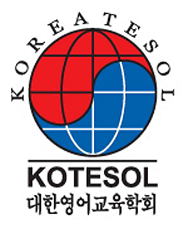
Prof. Jake Kimball
Assistant Professor
Semyung University, South Korea
“Transforming EFL Classrooms Through Effective Professional Development”
This proposal spotlights the transformative power of action research as a key driver of innovation in English as a Foreign Language (EFL) teaching. By fostering student-centered learning environments, this research method plays a pivotal role in increasing student motivation and enhancing willingness to communicate—two essential components of successful language acquisition. The session will emphasize how targeted, research-driven professional development can equip EFL educators with the skills needed to create responsive, student-centered classrooms. Participants will explore practical frameworks for implementing action research, and learn how to systematically investigate their own teaching practices. This process empowers teachers to become reflective practitioners capable of adapting their methodologies to meet the unique needs of their students. The session will also highlight how classroom research enables teachers to make evidence-based interventions, directly impacting student engagement and communication skills. By the end of the session, participants will gain concrete strategies for integrating action research into their professional growth. This will lead to meaningful, sustained transformation in their classrooms, ultimately improving student outcomes and teacher efficacy.
Biography:
KIMBALL Jake has lived and worked in Korea for over 25 years. He currently works as a language instructor at Semyung University. His professional interests include curriculum design, professional development, and writing and editing for publication. He is a Committee Member of IATEFL's Professional Development SIG and an active Lifetime Member of Korea TESOL. He earned his MSc in Educational Management in TESOL from Aston University, UK. He is particularly interested in how engaging in action research fosters professional development.
Sponsored by 
Dr. Joel MENIADO
Language Specialist
SEAMEO Regional Language Centre, Singapore
“Human-Machine Collaboration in the Age of Generative Artificial Intelligence: Evolving Practices of Language Teachers in the Southeast Asian Region”
The rapid evolution of generative Artificial Intelligence (AI) has propelled significant transformations in language education policies, paradigms, and practices. It has facilitated the collaboration between humans and machines (e.g., automated technologies and AI-powered digital tools), resulting in more effective, efficient, inclusive, and sustainable language teaching and assessment (Meniado, 2024). Human-machine collaboration as a concept and practice allows humans and machines (AI tools) to work together and complement each other’s unique strengths to complete a task effectively and efficiently (Meniado, 2023). In this presentation, I will discuss the enhanced concept and practice of HMC in language education in the age of generative AI. Reporting the findings of the regional study I conducted, I will exemplify how different language teachers/educators in the Southeast Asian region applied the concept of HMC as they integrated various generative AI technologies in the different stages of language instruction and assessment. I will end the presentation with an insightful discussion of the implications of the findings to curriculum design and development, language assessment, and language teacher professional development in the Southeast Asian region.
Biography:
MENIADO JOEL is a language specialist at the SEAMEO – Regional Language Centre (RELC) in Singapore, where he teaches a range of post-graduate courses on ELT pedagogy, technology integration, and research methods. Before joining RELC, he worked as a teacher educator in the Philippines and a language lecturer/trainer in the Middle East. In addition, he also served as a leader of different teacher development organizations and initiatives in various countries. As a scholar, he has published widely in the areas of language and literacy development, TELL/CALL, language assessment, and teacher professional development.
Sponsored by 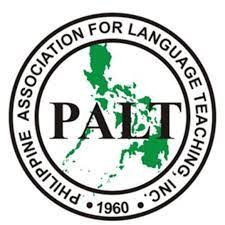
Dr. Margie U. Alcaide
Associate Professor
Faculty of Education, Arts, and Sciences, Philippines
“Revolutionizing English Language Teaching through Digital Storytelling: A Collaborative Approach to Students Engagement”
The integration of digital tools into education has redefined English Language Teaching, with digital storytelling emerging as an innovative strategy to enhance language learning. Combining narrative techniques with multimedia resources, this learner-centered approach supports the development of critical linguistic skills. This study explores its impact on speaking, writing, and listening abilities through qualitative methods, including interviews with students and teachers and classroom observations. The results showed that digital storytelling can significantly enhance speaking skill by providing students with authentic contexts for language use, such as voice recording, role-playing, and storytelling performances. These activities did not only improve fluency but also raised confidence and self-expression. Writing skills are similarly advanced as students engage in story planning, collaborative feedback, and creating narratives. Listening comprehension was strengthened through analyzing peer-created stories and participating in interactive listening exercises, fostering deeper understanding. Moreover, digital storytelling promotes cultural awareness, peer interaction, and collaboration. This study brings out the transformational potential of digital storytelling as a pedagogical tool by providing a comprehensive framework to remodel language education based on technology, narration, and collaboration. Keywords: collaboration, cultural awareness, digital storytelling, language education, multimedia learning
Biography:
U. ALCAIDE Margie is a recipient of a Fulbright scholarship program, the International Leaders in Education Fellowship Program (ILEP) which was fully funded by the government of United States. In this faculty exchange program, she was assigned at Arizona State University. She has been teaching for three decades already in the Philippines and abroad. She has a US certificate training credit to teach adult learners in “Train the Trainor” programs for Lifelong Learning training programs where she became a certified trainer at the Qatar International Safety Center in Doha, Qatar for four years.
Sponsored by 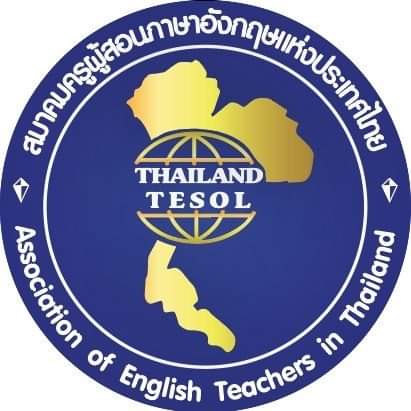
Dr. Thanakorn Thongprayoon
Dean
Srinakharinwirot University, Thailand
“Integrating Collaborative Learning in Language and Culture Classrooms in an EMI Context to Promote Collaboration and Creativity at an International College in Bangkok, Thailand”
This study investigated the integration of collaborative learning strategies in language and culture classrooms within an English as a Medium of Instruction (EMI) context at an international college in Bangkok. Collaborative learning activities, including group projects, peer discussions, and problem-solving tasks, were implemented to enhance student interaction, creativity, and cross-cultural understanding. A mixed-methods approach, involving surveys, classroom observations, and focus group interviews, was employed to evaluate the impact of these strategies on student engagement and learning outcomes. Results revealed that collaborative learning fostered deeper cultural awareness, improved language skills, and encouraged creative problem-solving among students from diverse backgrounds. Furthermore, participants reported greater confidence in expressing ideas and increased teamwork skills. The findings suggest that incorporating collaborative learning in EMI classrooms can promote both linguistic competence and cultural literacy while fostering a more dynamic, inclusive, and creative learning environment. These insights can inform curriculum design and teaching practices aimed at preparing students for success in globalized educational and professional settings.
Biography:
THONGPRAYOON Thanakorn is a distinguished educator and researcher with expertise in English language teaching, intercultural communication, and teacher professional development. He holds a Doctor of Philosophy (Ph.D.) in Educational Science and Learning Management and is a Senior Fellow of the Higher Education Academy (SFHEA), demonstrating his sustained contribution to teaching excellence and leadership in higher education. Dr. Thanakorn currently serves as the president of Thailand TESOL and the dean of the International College for Sustainability Studies, Srinakharinwirot University in Bangkok, Thailand. He can be contacted at thanakorn@g.swu.ac.th.
Sponsored by 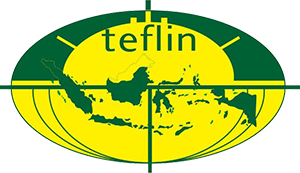
Dr. Dedi Turmudi
Associate Professor
Universitas Muhammadiyah Metro, Indonesia
“How Do Indonesian English Professors (Ieps) View Challenges in Writing Articles in the Light of the Bloom's Digital Taxonomy?”
The study aimed to identify and categorize the challenges Indonesian English professors (IEPs) face when writing scholarly articles in light of Bloom's Digital Taxonomy (BDT). The study investigated the 21 IEPs from Indonesia and employs a qualitative descriptive under phenomenology procedure with a mixed method, explanatory-sequential approach. The instruments were an online Google Forms and in-depth interviews. Data was obtained in the four stages and harvested category, numeric, and content data. Descriptive statistics and criteria content analysis (CCA) were employed to analyze the data. The interview were grouped into three sub-variables: pre-writing, during-writing, and post-writing challenges, and were justified by the BDT concept: Low order of thinking (LOTs) to Higher Order of Thinking (HOTs); low order of affective (LOAs) to Higher order of Affective (HOAs); Low order of Psychomotoric (LOPs) to Higher Order of Psychomotoric (HOPs). The findings show that the CD dominates significantly radically in the HOTS, the AD is poorly significant in the level of HOAs, and the PD is insignificant in the LOPs. The study reveals critical thinking and collaboration and implies that it has benefited individuals, professionals, institutions, and entities by contributing to developing the science of writing scientific manuscripts.
Biography:
TURMUDI, Dedi is an associate professor in ELT working for Universitas Muhammadiyah Metro (UM Metro) Lampung Indonesia. He had taught English since 1994 in high school before being a lecturer in 2009 at UM Metro. He teaches writing, academic writing, essay writing, research methods in ELT, Statistics in ELT, and cross-cultural understanding. He has 40 articles (some in Scopus and WoS) and 17 books. He obtained funded research and presented papers at numerous international conferences: TESOL Global, ASIA TEFL, TEFLIN, and others. He specializes in writing, technologies, research methods, and CCU research.His corresponding email is tdeditur@gmail.com
Sponsored by 
Dr. Mohana Ram Murugiah
Master Teacher
Ministry of Education Malaysia, Malaysia
“The Impact of AI-driven Research-based Learning on Enhancing Writing Proficiency among Higher Secondary Students in Malaysia”
This study investigates the impact of AI-driven research-based learning on enhancing writing proficiency among higher secondary students. It introduces a pedagogical approach where students engage in structured research before composing essays, enabling them to develop a comprehensive understanding of the topic and refine their writing skills. The process involves students researching specific essay topics, compiling reports on their findings, and analysing key aspects such as idea generation, essay structure, grammar, and vocabulary usage, making use of the freely available AI tools. By integrating AI tools such as language models, grammar analysers, and vocabulary builders, the study supports students in conducting in-depth research and organising their insights effectively. These tools provide real-time assistance, enabling students to explore diverse perspectives and refine their understanding before translating their findings into written form. The research-based method fosters critical thinking and ensures a more informed and structured approach to essay writing. Involving 10 form four students, the Preliminary findings of this study, indicate that this approach enhances students' ability to craft coherent, well-organised essays while boosting their confidence and engagement.
Biography:
MURUGIAH MOHANA RAM is an award-winning English language Master teacher (awarded to exceptional teachers in Malaysia), teaching at Methodist Girls’ Secondary School, Ipoh, Malaysia. He has completed his doctoral studies in English language teaching and has 21 years of experience as a teacher. In 2015, he attended the International Leaders in Education Program in the United States with scholarship. Following this programme, he initiated project-based learning at his school, a programme that continues to be conducted annually. Mohana also conducts workshops for both teachers and students throughout Malaysia. Integration of AI in teaching and learning is his current interest.
Sponsored by 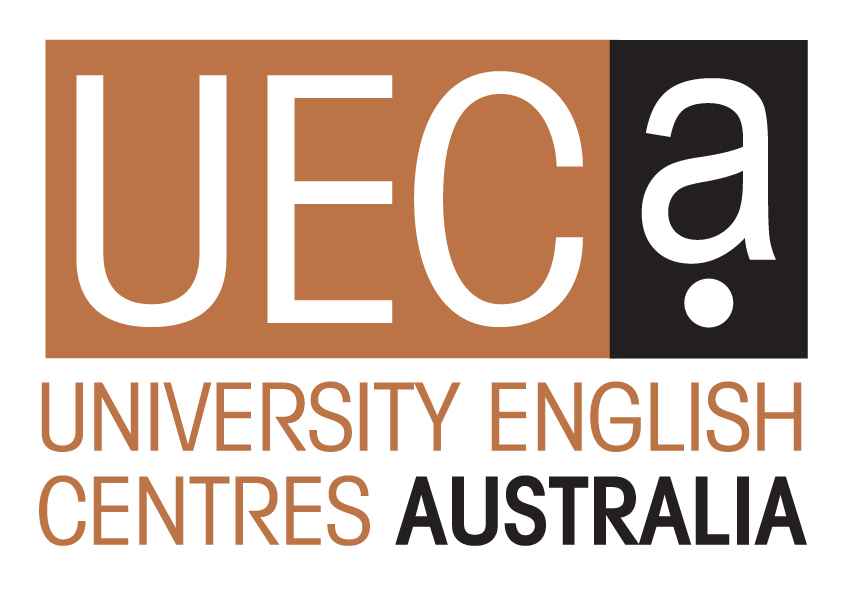
Dr. Barry Bai
Associate Professor
Faculty of Education, the Chinese University of Hong Kong
“Enhancing motivation and self-regulation in English writing: Research insights and classroom strategies”
Motivation is the desire to achieve and may be the single most influential success factor. It influences how students approach writing, their willingness to improve, and their overall attitude toward the writing process. On the other hand, self-regulated learning (SRL) refers to the process in which students actively take control of their own learning by deploying a series of SRL strategies, including goal-setting, planning, text-generating, monitoring and self-evaluation. In this presentation, I will first share some empirical research findings on the relationships between students’ motivational beliefs and use of SRL writing strategies. Then, I will introduce some classroom activities that can promote students’ motivation and SRL for success in English writing. In this connection, students can be provided with a choice of topics that are closely connected with their lives and experiences. Students can even be given more autonomy by discussing and designing their own writing topics. English teachers can also teach students to set writing goals. Useful strategies for the whole process of writing, i.e., before writing, while writing and after writing, can then be introduced to students, which include but are not limited to Organize Your Thoughts, Stretch a Sentence, Show! Don’t Tell, ARMS, CUPS and 3-2-1 Self-Reflection.
Biography:
Barry Bai is an associate professor at the Faculty of Education, the Chinese University of Hong Kong. He received the Faculty Exemplary Teaching Award in 2013/2014. Currently, he serves as the president of Hong Kong Association for Applied Linguistics and is an associate editor of European Journal of Education and Asia Pacific Journal of Education. In 2023 and 2024, he was recognized as a top 2% most cited researcher in languages and linguistics worldwide by Stanford University and ranked the top 3 in the category of primary school in prior 5 years by ScholarGPS in 2024.
Sponsored by 
Mr. Brian Cook
Academic Coordinator / CELTA Trainer
Australian Centre of Education / IDP Education Cambodia
“How Much Teacher Talk is Too Much Teacher Talk?”
One of the most common tips from observers and teacher trainers is to “reduce your teacher talking time,” but the precise meaning of this advice and the strategies to implement it are often unclear. This session will delve into these issues, differentiating between purposeful, productive teacher talk and the type of teacher talk that observers keep telling us to avoid. Then, the session will explore practical strategies to ensure that our teacher talk is beneficial, that teacher talking time is appropriately balanced with student talking time, and that our lessons are sufficiently student-centered. This session is particularly relevant for newer teachers and anyone else who has ever been told to reduce their teacher talking time, though observers looking for practical tips to offer observed teachers are also encouraged to participate.
Biography:
COOK Brian is an Academic Coordinator and CELTA trainer at the Australian Centre for Education (ACE) in Phnom Penh, Cambodia, where he has been teaching both online and face-to-face for the past several years. He has experience teaching young learners as well as teaching courses in general English, IELTS preparation, and English for academic purposes. He was previously a teacher trainer and lead teacher at ACE's campus in Siem Reap, and he served as a U.S. Department of State Virtual English Language Fellow in Panama.
Sponsored by 
Ms. Reaksmeypich KHLAING
Academic Coordinator
Australian Centre of Education / IDP Education Cambodia
“The Use of L1: Opportunities or Drawbacks”
The role of a learner's first language (L1) in second language acquisition (SLA) and English as a Second Language (ESL) classrooms has been a topic of debate among educators and linguists for decades. Therefore, this workshop will explore the dual nature of L1 use in language learning contexts, examining both its opportunities and drawbacks. It will outline some findings from the existing literature so that we could see if the opportunities outweigh the drawbacks or vice versa. Moreover, the workshop will also discuss the factors influencing L1 use in the classrooms. Lastly, it is hoped to give a more balanced perspective on the strategic use of L1 in pedagogical settings in order to avoid excessive use of L1 and its counter production. It will highlight the advocacy of integrating L1 in the ESL classrooms and how this integration should be done in a way that learning outcomes are maximised but the learning difficulties are minimised. This workshop is for both experienced and new teachers who are interested in gaining more perspective and experiences of using L1 in the class and to what extent they should allow its use in their classrooms.
Biography:
KHLAING Reaksmeypich is an academic coordinator at the Australian Centre for Education (ACE). She’s been engaging profusely in coursebook selection and teacher professional development. Reaksmeypich completed her MA of Art in TESOL from New Zealand (2021), a bachelor of TEFL from the Royal University of Phnom Penh (2013) and a bachelor of Education from the University of Cambodia (2012). She was a high school teacher of English (2014-2016) in Takeo province. She was a featured speaker at TEFLIN (2016) and a regular presenter at CamTESOL since 2015.
Sponsored by 
Ms. Ngim SENG
Lead Teacher
Australian Centre of Education / IDP Education Cambodia
“The Practice of Professional Development among EFL Teachers: A Study in One Private School in Phnom Penh, Cambodia”
Teacher professional development has gained a lot of attention in the education section in the past years. This is because of the increasing demands for the teachers to continue to provide a good or even better education quality to the students. With such needs as well as those from the school, professional development plays a very important role as it has been recognized to be able to help fulfill both the personal needs of the teachers and those of the institutions (Galaczi, Nye, Poulter, & Allen, 2018). The purpose of this research is to look into the attitudes of EFL teachers toward professional development, the importance they give to different professional development activities and their involvement in them, and various challenges to their professional development practice. A mixed-method approach was employed. The data were collected through the questionnaire with 76 EFL teachers, and later six teachers were interviewed for more in-depth information.
Biography:
SENG Ngim is a lead teacher at Australian Centre for Education (ACE). With over 7 years of teaching experience, she has been teaching students from various age groups in different programs. Besides teaching, supporting fellow teachers with their teaching is one of her main responsibilities. She is also often involved in different school projects. Her recent areas of interests are professional development, teaching young learners, and material development. Recently, she has completed her Master's Degree in Education at Royal University of Phnom Penh (RUPP). She completed her Bachelor's Degree in Teaching at Institute of Foreign Languages (IFL) in 2016.
Sponsored by 
Mrs. Sopoan Keo
Lead Teacher
Australian Centre of Education / IDP Education Cambodia
“Beyond Lesson Planning: Developing Coursebook Materials through SEA - Selection, creative Exploitation, and Adaptation”
The role of coursebooks is essential for English Language Teaching (ELT) teachers as it offers ready-made resources that can support both teaching and learning. However, since coursebook content is typically designed for a diverse audience, some materials might lack authenticity and relevance, might not engage for all learners, and might not fit the designated teaching time. This workshop is targeted at curriculum developers, teacher trainers, and particularly novice teachers. It aims to introduce ways to transform coursebook materials into dynamic teaching tools. Workshop participants will explore methods for selecting, tailoring, and customizing content to align with specific learner needs and profiles. The key takeaways for workshop attendees, by the end of the workshop, are effective and practical techniques for creating supplementary resources which can be implemented in the ELT classroom settings.
Biography:
KEO Sopoan has been a lead teacher at the Australian Centre for Education in Siem Reap, bringing years of teaching and training experience. She earned her Bachelor of Education from Royal University of Phnom Penh in 2015, later received a scholarship to Bowdoin college in the USA, and then completed her Master’s degree in Educational Administration and Leadership at Paññasastra University of Cambodia. In her roles, she collaborates with the management team to enhance teaching quality and supports the academic team in curriculum development. Besides, she has been a regular presenter at the CamTesol conference since 2017.
Sponsored by 
Mrs. Sokuntheary LAO
Lead Teacher
Australian Centre of Education / IDP Education Cambodia
“Navigating DEI in Education: Bridging the Classroom to the Real World”
DEI stands for Diversity, Equity, and Inclusion, and these interconnected concepts are crucial in education. Incorporating DEI in education is critical because it is instrumental in helping students and staff understand and respect our differences and shared humanity. They help create a fair, respectful, and supportive environment in both organizational and educational settings. However, implementing DEI in education presents challenges. Teachers often encounter resistance to change, limited resources, and difficulties in addressing implicit biases. Ensuring equitable access to support services and resources for all students can also be a struggle. This session will engage a diverse group of education professionals to discuss these key concepts, explore the challenges, and brainstorm effective strategies to enhance DEI efforts within the educational system. The goal is to share insights and solutions for better navigating and contributing to DEI initiatives in education.
Biography:
LAO Sokuntheary has been dedicated to the education sector for over a decade. In her 20s, she gained valuable experience teaching at various institutions and private schools. After spending more than six years at the Australian Centre for Education (ACE), she has accumulated a wealth of knowledge and unique perspectives on education. Always eager to grow both personally and professionally, she loves connecting with educators from around the world through various development opportunities and enjoys giving back to the community by sharing the skills and insights she’s gathered along the way.
For sponsorship and exhibitor opportunities at the 21st Annual CamTESOL Conference in 2025, please contact secretariat@camtesol.org or visit the 'Partnership Options' section of the CamTESOL website.